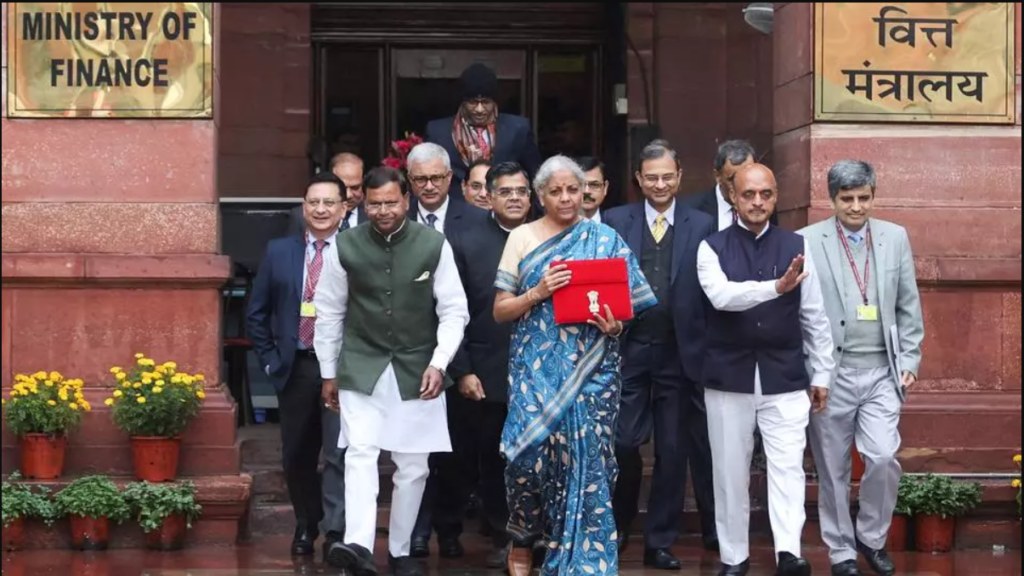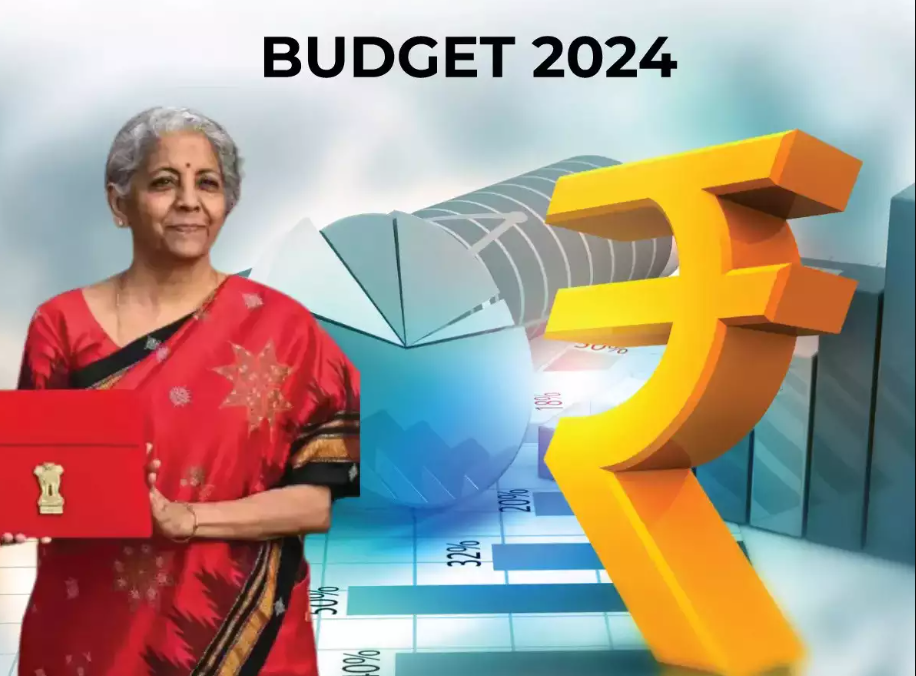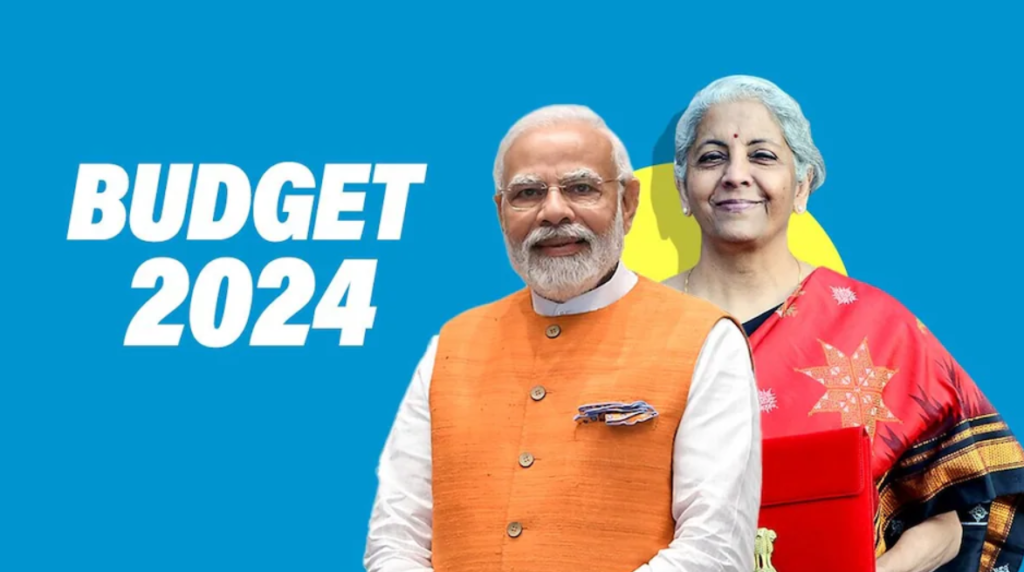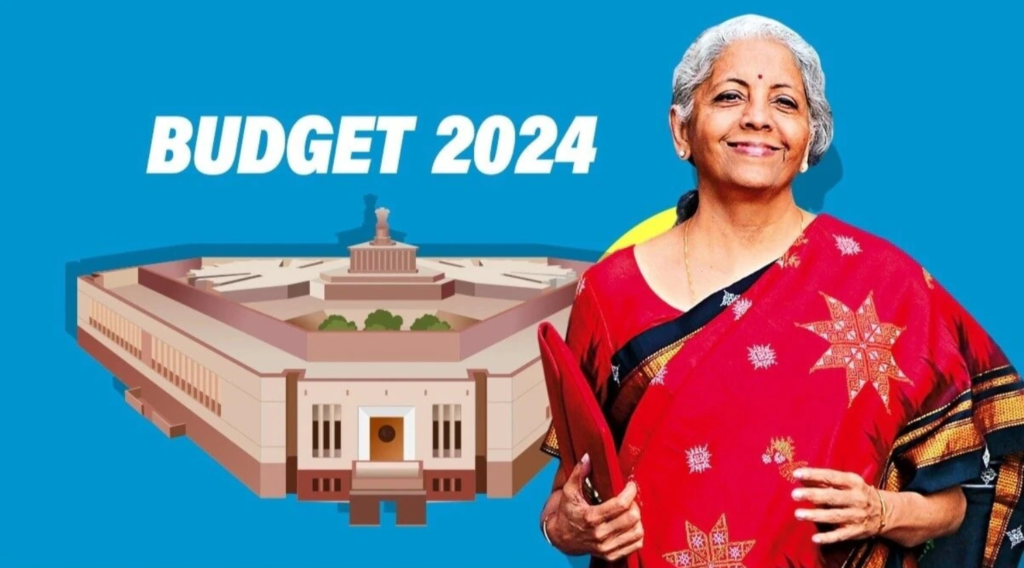Table of Contents

Union Finance Minister Nirmala Sitharaman presented the Economic Survey of India 2023-24, along with a statistical appendix, in both Houses of Parliament on July 22. The survey indicated that the outlook for India’s financial sector is promising, but it must prepare for potential vulnerabilities. The Indian financial sector is at a “turnpike moment,” with a decreasing reliance on banking support for credit and an increasing role for capital markets. Sitharaman will present the Union Budget for 2024-25 in the Lok Sabha on July 23, marking the first budget of the Modi Government since the NDA returned to power for a third consecutive term.
According to the report, India’s GDP is projected to grow at 6.5 to 7% in the current fiscal year despite global challenges that may impact exports. This growth projection for 2024-25 is lower than the 8.2% economic growth rate estimated for the previous financial year.
The Economic Survey serves as an official report card on the government’s financial performance and the state of the economy for the year ending March 31. It also provides an outlook on future policy changes and is typically released by the Ministry of Finance a day before the Union Budget is tabled. The Economic Survey 2023-24, released on February 1, 2023, stated that the pandemic-induced economic downturn has ended, and the outlook for the coming years is brighter than in the pre-COVID era.
The Union Budget for the fiscal year 2024-25 will be presented by Finance Minister Nirmala Sitharaman in the Lok Sabha on July 23, 2024. This budget is notable as it is the first budget of the Modi Government since the NDA was re-elected for a third consecutive term.
Tax Details
The Union Budget typically includes several key tax proposals that impact individual taxpayers, corporations, and other entities. The details for the 2024-25 fiscal year will be revealed during the budget presentation, but here are some common areas that might be addressed:

Income Tax Rates and Slabs:
- Adjustments to the tax rates and slabs for individual taxpayers.
- Potential changes in exemptions and deductions available under various sections of the Income Tax Act.
Corporate Tax:
- Changes in the corporate tax rate.
- Introduction of new incentives or modifications to existing ones for industries and sectors to boost investment and growth.
GST (Goods and Services Tax):
- Possible revisions in GST rates for various goods and services.
- Simplification measures to make GST compliance easier for businesses.
Capital Gains Tax:
- Modifications in the tax rates for short-term and long-term capital gains.
- Changes in the holding period criteria for different asset classes.
Other Taxes:
- Adjustments in customs and excise duties to protect domestic industries or to encourage exports.
- Introduction or revision of cess and surcharges for specific purposes.

Price Details
The Union Budget also influences prices of various commodities and services through changes in tax rates, subsidies, and duties. Key areas likely to be addressed include:
Petroleum Products:
- Changes in excise duty and customs duty on petrol, diesel, and other petroleum products which directly impact fuel prices.
Agricultural Products:
- Subsidies and support prices for key agricultural commodities.
- Import/export duties on agricultural products to balance domestic supply and demand.
Essential Goods:
- Adjustments in GST rates on essential goods to control inflation and make basic necessities more affordable.
Luxury Goods:
- Increase in taxes or duties on luxury goods to generate additional revenue and discourage non-essential consumption.
Real Estate:
- Measures to boost the real estate sector, such as tax incentives for home buyers or developers.
- Impact on property prices due to changes in stamp duty or other related taxes.

Survey 2023-24
Economic Survey Insights
The Economic Survey for 2023-24, which was tabled on July 22, 2024, provides a detailed analysis of the state of the economy and forms the basis for many of the budget proposals. It highlighted the need for structural reforms in various sectors, job creation in the non-farm sector, and improving the efficiency of MSMEs and the aviation sector. The survey also called for urgent reforms in agriculture to address long-term challenges such as climate change and water scarcity.
For the most accurate and detailed information on tax changes and their impact on prices, it is best to refer to the actual budget speech and accompanying documents, which will provide a comprehensive breakdown of all proposed measures.
Economic Survey on the Aviation Sector
- To position India as a leader in aviation, there is a need to improve the efficiency and viability of airlines.
- A significant portion of Indian international long-haul traffic currently connects through hubs in the Middle East and Southeast Asia. Strengthening Indian airlines to provide adequate long-haul connectivity from India is essential.
Job Creation Needs
The Indian economy needs to generate an average of nearly 78.5 lakh jobs annually in the non-farm sector until 2030 to accommodate the rising workforce. The survey emphasized the crucial role of the private sector in job creation, noting that the financial performance of the corporate sector has been exceptionally strong. A sample of over 33,000 companies show that their profit before taxes nearly quadrupled b/w FY20 and FY23.
Urgent Agricultural Reforms
The pre-budget Economic Survey call for urgent reforms in Indian agricultural sector, warning that structural issues could impede the country’s overall economic growth. Chief Economic Advisor V. Anantha Nageswaran advocated for a pan-India dialogue on agriculture, stating that while Indian agriculture is not in crisis, it requires serious structural transformation due to the looming challenges of climate change and water scarcity. The CEA recommended a reassessment of existing policies despite current government subsidies and support for farmers.
Reducing Compliance Burden for MSMEs
India’s micro, small, and medium enterprises (MSMEs) continue to face extensive regulation and compliance requirements, alongside significant bottlenecks in access to affordable and timely funding. The Economic Survey stressed that reducing the compliance burden for MSMEs would significantly improve their growth prospects. It recommended progressively easing compliance requirements through a single-window mechanism for clearances, digitization of processes, and equipping MSMEs to handle these processes with ease.
for more related info. go on :https://www.thehindu.com/
for more news go on: https://comingglobe.com/









